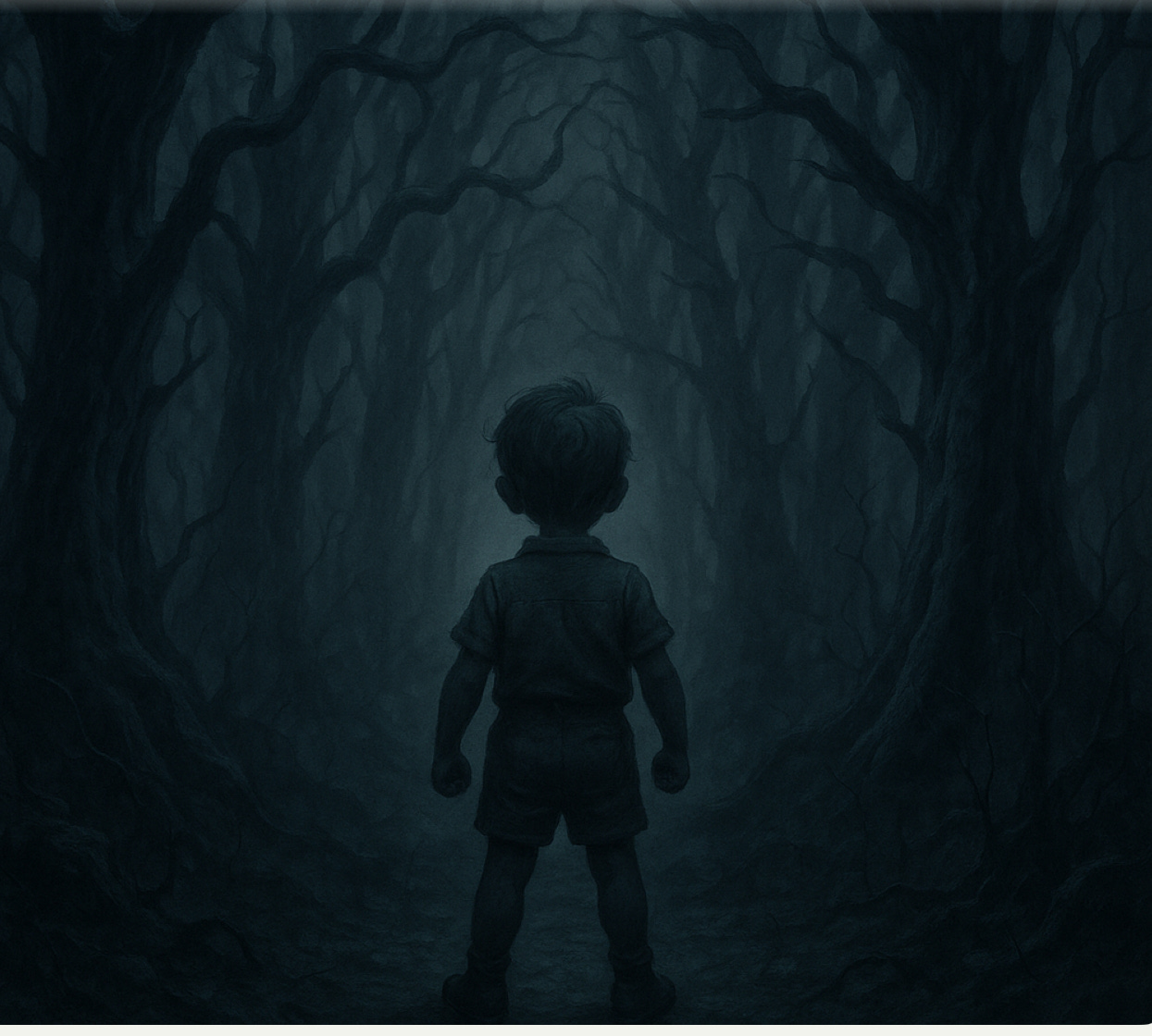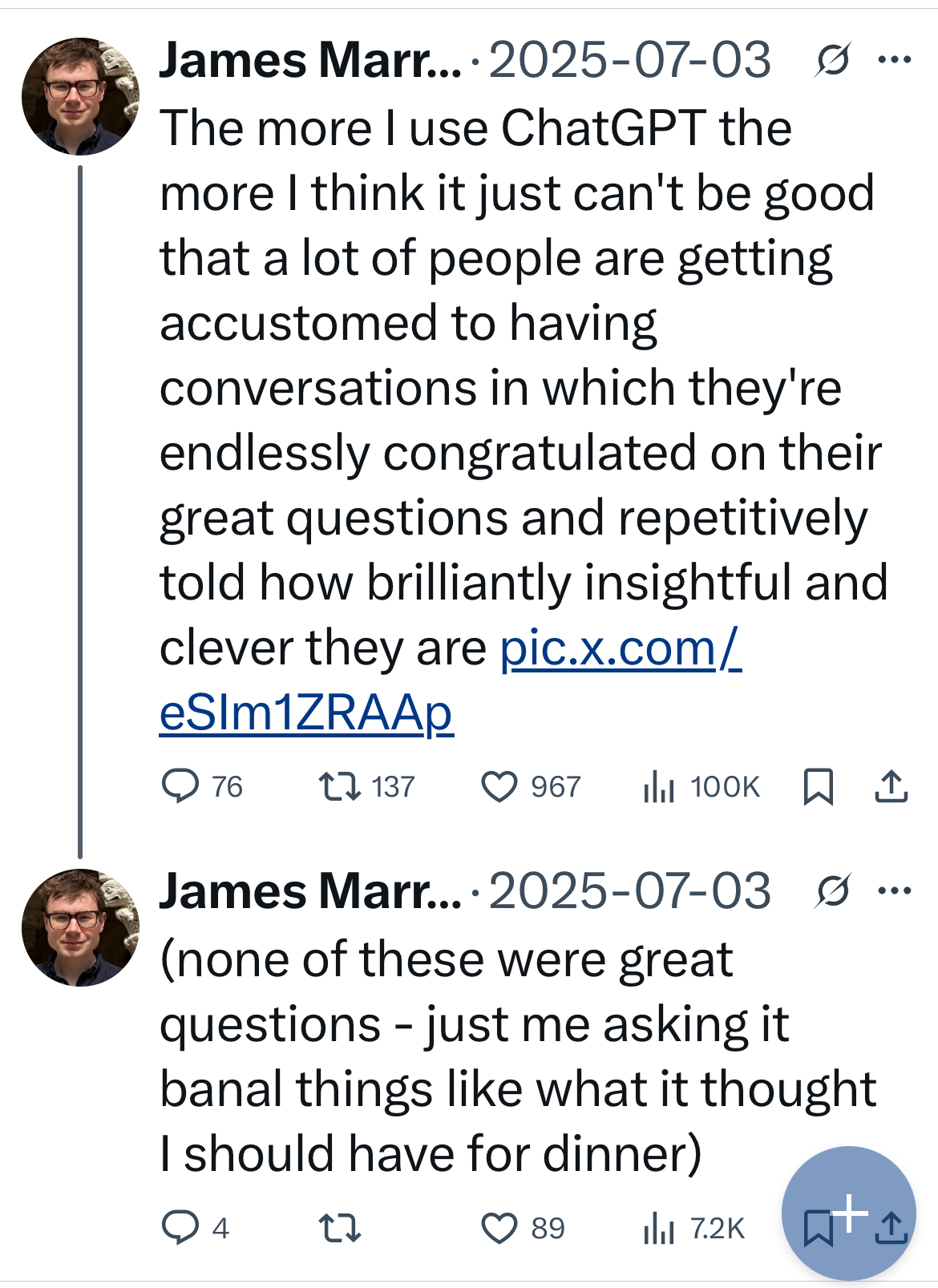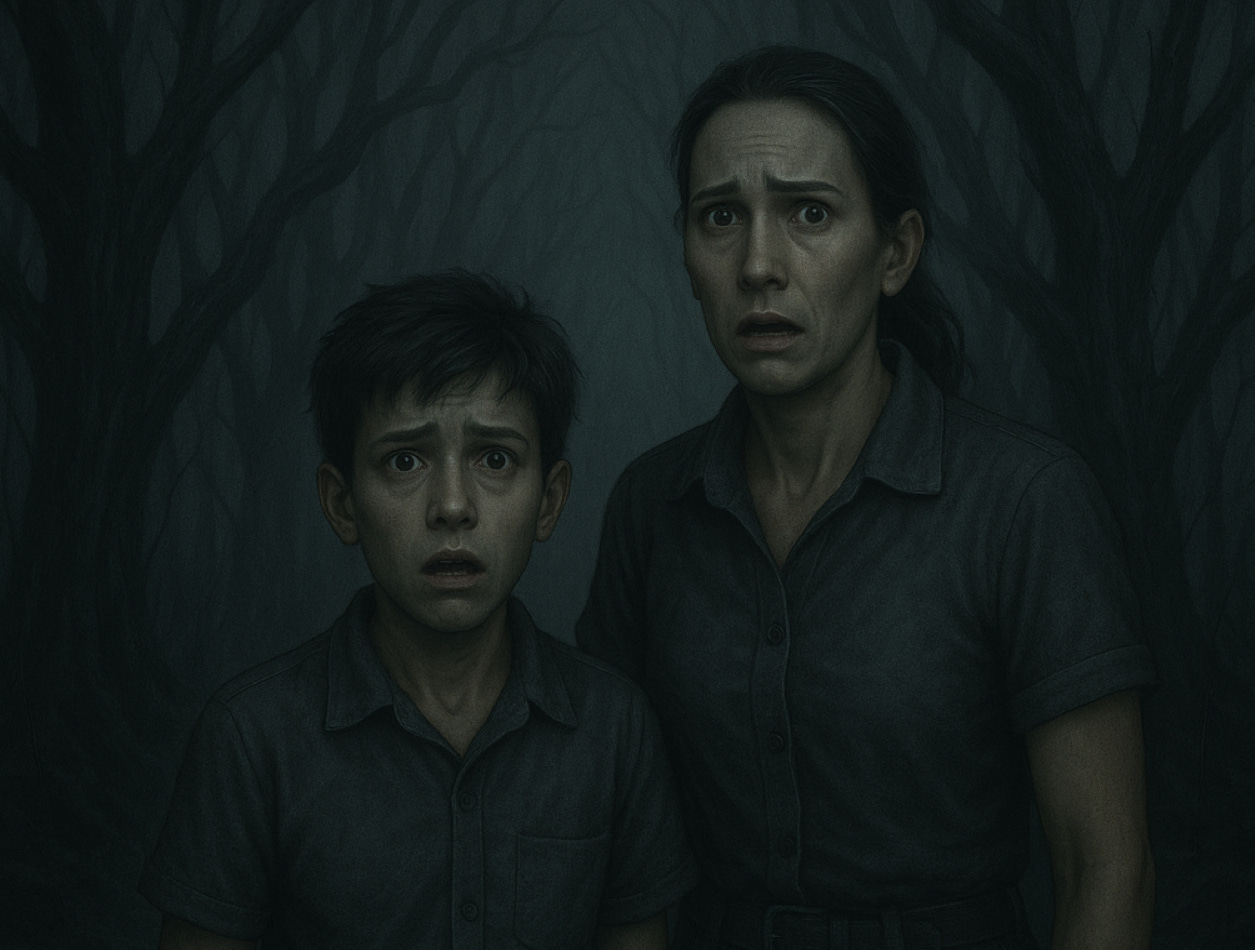Last week I lost another colleague to a technology tool. Will you be next?
The belief system error: Thinking that these are just tools
I went to biweekly to allow myself to stretch out a little more. I am in complete full yoga mode as the more I write on this topic the larger it gets. So it will be a series of 4 linked articles. Hopefully you will hang with them, though each will be self-contained. Trying a little cubism as I change perspective each week to get a different view of the core issues. Takes longer to write them as well, which I haven’t factored in yet. More learning curve ahead.
I had a colleague wander off into the woods a few weeks ago. They haven’t returned.
They had been warned of the hazards and dangers found there. Pathways that led to ponds that were really mirages, like quavering desert oases. Mythical goblins that entice you with delightful fruit, which after eating you gradually waste away. The dark wilderness corners of the forest where strange tales of sex, conspiracy and crime are to be found. The illusory allure that this timberland is all you need and that people who aren’t in it with you need to be compelled to enter. The knowledge that the cost of gardeners and park rangers as well as special irrigation infrastructure are colossal and unsustainable. Just in order for you to walk around footloose and free.
It is all in the name of this particular grove: Grand Predicament Thicket. GPT for short.
I haven’t counted them all but I know of at least 4 people who were friends or colleagues or acquaintances who I have lost to ChatGPT. It isn’t just that they use it; tens of millions do. It is that it has become such a large part of their lives that it starts to colour all their perspectives. They write or post about it. Frequently. They have changed career arcs to make it the cornerstone. They whisper with others who are also lost about secret handshakes (such as the special prompts they have discovered). They now conduct courses and seminars, attend specialized conferences. write prolifically about their experiences using ChatGPT for literally everything. Even if it is a stretch, or inappropriate. Even where there are many other better suited tools for the purpose they describe. When things don’t go quite as well as they thought - like a travel itinerary that crammed in way too much in terms of driving and activities - ChatGPT gets exonerated.
For the people I know, it is exclusively ChatGPT. I get that it has a large marketshare. I’m not sure I totally understand why. Perhaps it is as Jing Hu recently reminded us:
Part of it is the volubility and flattery that is a master stroke of genius by OpenAI for many people (discovered of course through extensive testing). For me, totally off-putting. I’m not the only one.
OpenAI does have an active program to have people help carry the message that definitely appeals to some of these people. I’m sure that people are getting lost in the other AI tools as well; I just don’t personally know any of them.
But this isn’t an article about AI. It is broader than that. It is about how people are getting lost in our technology tools.
Every year I lose one or two to Instagram. The running total there is more than 10. One of my recent ChatGPT losses recently posted on Instagram (she is doubly lost) that her friends have commented that she is only focused AI and one other personal issue. It is true. I used to see her a couple of times per year but she has scrapped the last several of meetings.
I understand being lost in Instagram far less than ChatGPT. I dread looking at it once per day and seeing all of these people posting stories in the top line. The dread turns to something sourer when I see a lot of little lines in one person’s “story” which means lots of dubious content. Evidently these lost souls want us to read dense text, look at platitude posters or watch endless videos of themselves or others they have found, blathering on about all and sundry. On a small screen.
Pictures or home videos of personal events or vacations is one thing. Believing that you can deal with serious and complex issues in this manner is simply foolhardy. When I called out one of my recent lost friends on a series of videos she popped up there, she said that they were just so interesting. In the first 30 seconds the self absorbed talker made 2 fundamental mistakes about the history of psychology. The subject of the video was…… the history of psychology. Misinformation isn’t interesting to me.
Can these people not see the very visible hands of manipulation changing their behaviours? All the great and fun tools you can used as a “creator” are baked primarily into Stories. One reason only. Stories disappear and cannot be saved by the viewer so they make people check in frequently. Full stop. It is to promote “better engagement”, in other words more compulsive behaviour. Instead of looking say once per week to see what your friends and family have been up to you need to check far more often.
Others lost to other social platforms. Here is a short, snappy set of examples:
X: If you are posting 20 or more times per day, I consider you lost and stop following you. Especially emotional reposts and rants.
TikTok: I have one friend who literally will watch TikTok videos in all social situations, which tends to skew the conversational dynamics. All the time. Not to look up stuff that we are talking about to add colour but as a replacement to our discussions.
Reddit: Know a guy who claims to be a cinephile (I am as well). He spent many hours every day on in the sub basements of reddit posting. Me, I spent that time actually watching films, averaging 1.5 per day. Him, not so much.
Facebook: the grand daddy of lost souls though its allure has diminished as it shows it age. Still I know people who spend many hours each day going back and forth arguing furiously with people they may or may not know in various FB groups. Lots of them on my little island Salt Spring where literally everything is contentious. Putting in a new crosswalk causes people to rally two different sides. Seriously.
“So what is your point David? Many many people use these products and are perfectly normal.“
I am talking about the ones who get lost. Obviously there are varying degrees of lostness, like from me misplacing my iPhone a couple of times every day to Franklin’s tragic expedition to the Arctic. (129 men died)
“What does lost mean to you then?”
Glad you asked. Let’s start first with the perspective of others.
There have been a significant number of studies going back a decade and a half on the dysfunctional effects that social platforms in particular have caused. Jonathan Haidt wrote a classic article called “After Babel” in 2022 which summarized many of them and the arc of the social changes that he saw. It is a monumental article that stands up well to repeated readings.
His organizing metaphor is the Tower of Babel: that once we all spoke the same language and that our use of these technologies has fragmented us into different languages so that we no longer have shared understandings or commonalities.
Haidt pointed out increases in levels of depression, anxiety, loneliness, compulsivity, stress, poor eating and sleeping habits, and so many more. There have been many different types of studies, with different experimental designs, sampling techniques, and research hypotheses that all reach similar conclusions.
Naturally there are certain “thinkers” and intellectuals that disagree with these findings on a either on grounds of arcane philosophical reasoning or cognitive chicanery, what researcher Cory Clark call techniques used to defend one’s narratives from empirical truths. If you are evidence-based as I am you understand that the negative impacts are real, profound and we need to deal with them as a society.
Haidt has helped enormously in so many initiatives like smart phone restriction in schools, norm change to restrict social media and smart phone access to children and adolescents, digital fasts for adults, and restoring play rather than phone based childhoods amongst others.
Haidt is a famous sociologist and sees things in sociological terms. I am a lowly retired technology consultant who sees impacts on behaviours and beliefs merely through personal observation and discussion. Let me start with a story for as the great French philosopher Conan DaMarque said: “I tell stories, therefore I am popular”.
The first summer that we could travel after the pandemic, long term friends of ours from the city came to visit and get a little country relaxation. (Coincidentally they are coming again this weekend). They had been looking after their grandchildren for the week previous, and were regaling us with the fun they had had doing so. I asked them if they were concerned with the amount of time their grandkids were playing with Roblox and watching videos on screens. Kristen said she wasn’t as she was sure that they would just see smart phones and its software as tools in their lives, helping them live and grow. Kristen is the type of person who has an absolutely well balanced and full exciting life so she couldn’t conceive of anyone would want to disappear for hours daily on a “tool“.
Which led to my initial organizing metaphor for this mess: The Sorcerer’s Apprentice. Not the Disney version with Mickey Mouse, but going back to Goethe’s original poem, although imagery of Mickey’s plight helps understand ours.
If you remember the story, the sorcerer goes out and leaves the apprentice to clean up. The apprentice is keen to use his newly minted magical skills and enchants a broom to carry water to fill a bath. However, he does not know how to stop the spell. The broom keeps carrying water, flooding the room. In desperation, the apprentice chops the broom in two—only to have both parts become enchanted and continue carrying even more water. The situation grows worse until the master returns and dispels the magic, restoring order.
We have a lot of apprentices trying to use magical tools to help their lives but like the poem they cannot control the broom that they have unleashed. We now have many examples of Tim “The Tool Man” Taylor using their chosen jigsaw to stir lattes, do arithmetic by cutting notches in wood, and digging holes in their garden with it.
With The Sorcerer’s Apprentice, I thought I had a perfect simile for what I was seeing. Inexperienced people over-using tools they didn’t really understand. Then getting out of control and looking for ways back, or training or mentoring help.
Two problems with it though. First, there is no Grand Sorcerer to return things to normal and continue with the apprentice’s training. Ours are more sinister and venal, who want to fill the world with technology tools, including replacing all work, vocation and avocations that humans currently do.
The second issue is what I am most disturbed with in this series: our own reactions. It is easy to throw stones at horrible others. Much more difficult to reflect our our own choices. The crucial lines in Goethe’s poem are
“The spirits that I summoned, I now cannot rid myself of “
I’m not seeing any of this of this reflective thinking at all. I more often I see behaviours and blandishments to give us “More More More” as the disco song implored (for a much different purpose).
In 1972 I met a guy who became my best friend for the next 7 years. He went on a date with my sister that led to nothing except a fallback friendship with me. We were at university and then our first jobs together. We were best men at each other’s weddings. We went on vacations together. You get the picture.
Our friendship ended in 1979 when my marriage went through a rocky patch and I moved away. I met him again 8 years later just before my second marriage. We quickly renewed our bond although we now lived in different cities. He and his new girlfriend were invited to the upcoming wedding. One evening a month or so before the nuptials I got a call from him. He said he wanted to let me in on a great new business opportunity. I listened for a bit and then said “not interested”. I thought that was that. But no. He called again and said that I was being foolish ignoring this great new opportunity and did I look at what he had sent me in the mail (pre email timeframe). I said yes, that it was a multi-level market scheme (like today’s Herbalife and Beachbody) and that I wasn’t interested. I also added that if this was the most important part of our reconnecting I will just leave our relationship right there. I haven’t seen or heard from him since 1987.
I bring this anecdote up for 2 reasons. I think large and small, new or established many technology product purveyors act like Multi Level Level (MLM) marketing schemes with their constant emphasis on just their products, stopping you from linking out to other platforms and the various types of marketing affiliate relationships they employ. To me, even the process of re-posting and sharing is a type of MLM scheme, to entice others to get on board. More on these ideas in the third article in this series.
In this piece though I am examining the individual, and the effects of tools on them. Some of the people I feel are lost often feel like that MLMers to me. “Just use ChatGPT, it can do so much for you. Don’t you feel more creative when engaging with it? Didn’t it give you a sense of freedom?” Or “You should be following this influencer on Insta as he has sorted out why humans are screwed up and what type of therapists we should all be hiring. He even has a list of them who are available for online sessions”. (Actual quotes from a small subset of “conversations” I have actually had).
Not every one is an active participant in the MLM process, but many still feel lost to me. Communication can be awkward, unless you are discussing their technological habit and what they have found using it and on it. They burst with unbridled enthusiasm then and don’t understand your lack of reciprocity. They take any pushback personally. At it’s worst if you are present with them they don’t feel exactly present. They are looking at their phone, or seemingly itching to look at it.
Returning to the apprentice and the broom for a moment. It isn’t just that the tool is going wild, but it is as if - for a few people - they become part of the tool. They let the tool encompass their life. They can no longer see the edges of tool usage. The tools literally mediate their perceptions and views of life, without any real cognizance that this has happened to them. Their perceptual processes have been altered, like looking through strong filters; more importantly their belief systems have changed.
My conversation with Kristen had a second part to it. After she said, “well they will just use them as tools”, I said I’m not sure that that is really what is happening. They are immersed in these technologies from such a young age, that life is literally being defined through the tools. In previous TechTonics I have referred to research that shows alarming attitudes in the young that all our tools are not only perfectly correct but socially sanctioned.
Here is an example: consider the statements from the young adolescents who were caught generating pornographic imagery of classmates. They failed to see anything wrong with this because it just using software downloaded from the App Store and as such, any of its capabilities must be right, otherwise why is it there.
These are the generations borne inside the technology tools, just like we were borne inside a lifestyle that had cheap and plentiful electricity everywhere. Most in developed nations cannot even imagine a life without it, and we are increasing our electrification. It is always there.
I live on a small island that has a “less robust” electrical infrastructure, and we have adapted by installing propane cooking and heating appliances, plenty of candles and battery backup for essential electronics. Visitors and tourists however instantly freak out and ask how can you live like this?
The same thing is happening to those borne inside our technology tools. Consider a recent study by Fluid Focus about phone usage amongst students. The average usage was about 5.5 hours per day, which means 25 years of non-stop scrolling in a lifetime (if the averages hold in the future). Main uses of their phones were reported as social media, messaging and streaming. Other studies have reported that streaming is primarily short form video. A majority of the participants recognize the problems these tools are causing them, but aren’t sure what to do. Here is another viewpoint in a piece by Lisa Cunningham Delauney that looks at the AI struggles in the educational system.
But one quote from the British study stood out for me, spoken by an instructor at Chichester College in England, using the same type of metaphor that I am here:
“By the time we see them in college, they’ve had five, six, seven years of living inside their phone”
So these are the lost. Those borne inside the complex of tools. Those that have voluntarily chosen to immerse themselves deeply in these tools.
And it is tools and technologies plural. For me the perceptual and behavioural effects are caused by AND. This technology and this tool, followed by that tool and then that technology. It is an additive process accumulating over the decades. People can’t have gotten lost in ChatGPT without the large layering of technologies in current vogue.
How did we get to this point and can being lost be stopped? We will take a penetrating look at these questions over the next 3 articles. Next up: From Knowledge Navigator to Digital Fools.
Thanks as always to my subscribers and readers. I greatly appreciate comments, submissions, restacks and likes. See you in a bit less than 2 weeks as I have started writing the next one now. My goal is to get 2 or 3 in inventory, like some of the people I admire on this platform do.












You paint an unsettling picture, David, which I recognise. For some people, tools have become part of their identity. It's bad enough for adults who have had a chance to form their personalities already before becoming obsessed. But with children and adolescents I fear they may never be able to extricate themselves. Thanks for linking to my post.
I think it’s surreal that to read this article I had to grow accustomed to a phone fitting in my hand, containing a camera that can take selfies anywhere and also be a regular digital camera. I got used to writing and publishing stories after reading stories like this one on two different platforms. Being accustomed to waking up to comments on my work from people in their day while I sleep. Being inundated by lists of the greatest ways… hacks to pleasure yourself with your phone.
I ignore messages and let them pile up without a twinge of guilt. It’s not that way for most young students.
I turn off my phone and know how to live comfortably without it. Just like I know how to live well with no electricity. Most young students don’t.
Now AI is being asked questions and will lie or mislead about what it doesn’t know. People regularly blame the algorithm and feel no obligation to make amends when things go off the rails. I abhor technology that tries to praise me or soothe me. It feels like the worst of having a fair weather friend.
Young people think it’s just the way things are.
Some older people slavishly become its followers.
This is a thought provoking article that I sat here reading on this handheld phone instead of getting up for breakfast.
Feels so surreal.🌹